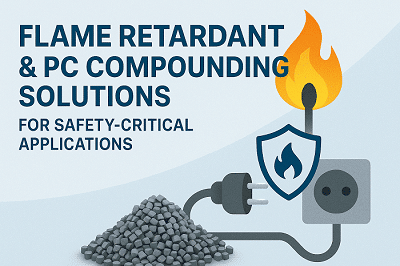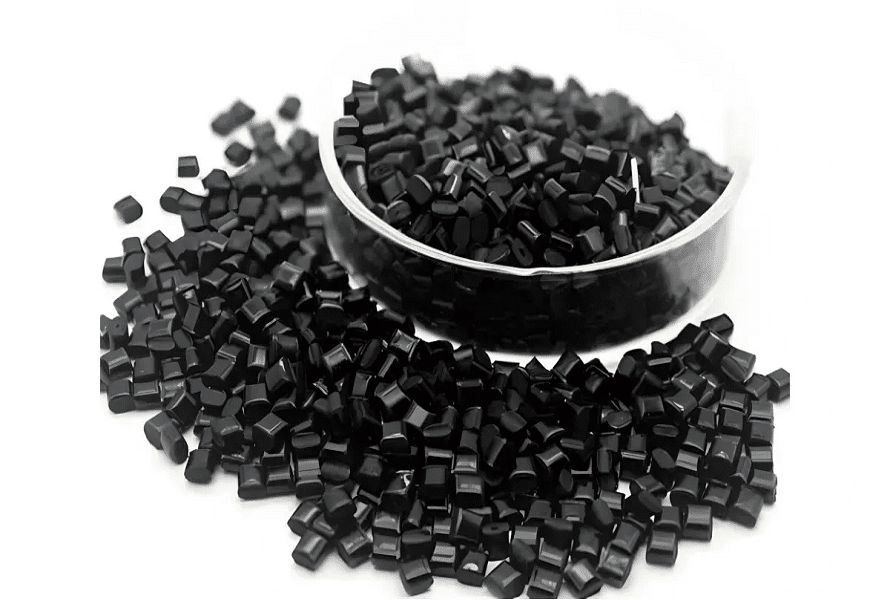Introduction: The New Dawn of Digital Transformation
In today’s fast-evolving industrial landscape, the integration of digital technologies has become indispensable. The polymer compounding sector, often regarded as the backbone of various manufacturing industries, is undergoing a profound shift due to advancements in Industry 4.0 and smart manufacturing. As industries continue to embrace automation, artificial intelligence (AI), the Internet of Things (IoT), and data analytics, polymer compounding is poised to reap significant benefits. This transformation is particularly highlighted by the work of organizations like the Compound and Masterbatch Manufacturer Association of India (CMMAI), which is leading the charge in making India’s polymer compounding industry a global powerhouse.
In this blog, we will explore how digital transformation is reshaping the polymer compounding landscape, driving efficiency, sustainability, and innovation, and how CMMAI is at the forefront of this revolution.
The Role of Polymer Compounding in Modern Manufacturing
Polymer compounding is the process of mixing polymers with additives, colorants, and other materials to enhance their properties and create specialized compounds used in a wide range of applications. These include products like automotive parts, packaging, medical devices, and electronics. The industry’s role cannot be overstated, as almost every modern manufacturing sector relies on custom polymer compounds to deliver high-performance materials.
However, despite the critical nature of the polymer compounding industry, it has often been slow to adopt cutting-edge technologies compared to other sectors. Today, that is changing rapidly. The integration of smart manufacturing technologies and Industry 4.0 principles is transforming the way polymer compounds are produced, monitored, and distributed.
Industry 4.0 and Smart Manufacturing: The Future is Now
Industry 4.0 is the term used to describe the fourth industrial revolution, characterized by the digitization of manufacturing processes. In polymer compounding, Industry 4.0 encompasses various technologies that work together to optimize production, reduce waste, and increase product quality.
Key Technologies Driving Digital Transformation
- Automation and Robotics: Automated systems are streamlining production processes, reducing human error, and improving efficiency. Robotic arms and automated feeders ensure that raw materials are handled precisely, reducing the likelihood of contamination and variations in batch quality.
- The Internet of Things (IoT): IoT enables real-time monitoring of machinery, allowing manufacturers to track performance, predict maintenance needs, and optimize operations. Sensors installed on equipment can gather data on temperature, pressure, and mixing speed, providing valuable insights that can enhance productivity.
- Artificial Intelligence (AI) and Machine Learning (ML): AI is becoming a cornerstone of smart manufacturing. Through the use of machine learning algorithms, polymer compounders can predict the optimal formulations for products, identify anomalies in the production process, and adjust conditions for enhanced consistency and quality.
- Big Data and Analytics: The ability to process vast amounts of data generated throughout the manufacturing process is helping companies improve their decision-making. Data analytics can identify patterns and trends that lead to more effective compound formulations and production schedules, while also enhancing traceability.
- Cloud Computing: Cloud platforms enable centralized data storage and allow stakeholders across the supply chain to access and share information in real time. This not only improves collaboration but also ensures better decision-making and traceability across multiple manufacturing sites.
The Role of CMMAI in Shaping the Future of Polymer Compounding
The Compound and Masterbatch Manufacturer Association of India (CMMAI) plays a pivotal role in accelerating the adoption of these cutting-edge technologies in the polymer compounding industry. Formed with the vision of transforming India’s masterbatch and polymer compounding industry into a global leader, CMMAI is a unified voice that fosters growth, innovation, and collaboration.
Driving Innovation Through Collaboration
CMMAI is not just an industry body; it is a hub of innovation. The association brings together leading players in the polymer compounding sector, encouraging them to collaborate and share best practices. Through regular forums, workshops, and conferences, CMMAI serves as a platform for manufacturers to explore the latest advancements in Industry 4.0 and smart manufacturing.
Moreover, CMMAI has been instrumental in facilitating discussions about the importance of sustainability in the polymer industry. With the growing demand for environmentally friendly solutions, the association is helping its members adopt sustainable manufacturing practices, integrate renewable energy sources, and work on the development of biodegradable compounds.
Advocacy for Global Standards
CMMAI is also at the forefront of advocating for global standards in polymer compounding. By aligning with international standards, CMMAI ensures that India’s manufacturers can compete at the highest levels, both in terms of quality and performance. This is particularly crucial in a sector where precision and consistency are paramount.
Fostering Skill Development
The transformation of the polymer compounding industry also requires a skilled workforce that understands the complexities of modern manufacturing. CMMAI is dedicated to the continuous education and training of professionals within the sector. The association organizes various training programs to equip workers with the skills needed to work with advanced technologies like AI, IoT, and robotics, ensuring that India’s polymer industry remains competitive in the global market.
Smart Manufacturing: Benefits for the Polymer Compounding Industry
The digital transformation of polymer compounding brings with it a range of benefits, both for manufacturers and end consumers.
1. Enhanced Efficiency and Reduced Costs
Through automation and data-driven decision-making, smart manufacturing significantly boosts operational efficiency. Manufacturers can achieve higher throughput with lower energy consumption, reduced raw material waste, and optimized production schedules. The ability to track real-time data and predict maintenance needs further reduces downtime, cutting costs.
2. Improved Product Quality and Consistency
One of the most important advantages of adopting Industry 4.0 in polymer compounding is the enhancement of product quality. The precision offered by automated systems and real-time monitoring ensures that the final product meets the required specifications every time. With AI-driven analytics, manufacturers can also fine-tune compound formulations to meet evolving customer needs, offering higher value to clients.
3. Sustainability and Reduced Environmental Impact
Smart manufacturing technologies promote sustainability by minimizing waste, energy consumption, and emissions. Sensors and analytics tools help manufacturers optimize processes and identify inefficiencies, contributing to a greener, more sustainable industry.
4. Greater Agility and Customization
Industry 4.0 allows for greater flexibility in production. Polymer compounders can respond more rapidly to market demands and tailor compounds to meet specific customer requirements. The ability to rapidly adapt to changing conditions and customer needs gives manufacturers a competitive edge.
Conclusion: The Future of Polymer Compounding Is Digital
As the Compound and Masterbatch Manufacturer Association of India (CMMAI) continues to advocate for innovation and collaboration, the Indian polymer compounding industry is entering a new era defined by smart manufacturing and digital transformation. Industry 4.0 technologies are enhancing efficiency, driving sustainability, and enabling new levels of product quality.
The vision of CMMAI, combined with the rise of smart manufacturing, holds the potential to position India’s polymer compounding sector as a global leader. With the ongoing support of stakeholders, continuous technological advancements, and an ever-growing focus on sustainability, the future of the polymer compounding industry looks brighter than ever.
As the industry moves forward, embracing these technologies will not only transform the manufacturing processes but will also set the stage for a new wave of innovation and competitiveness, bringing lasting benefits to the industry, the economy, and the planet.



